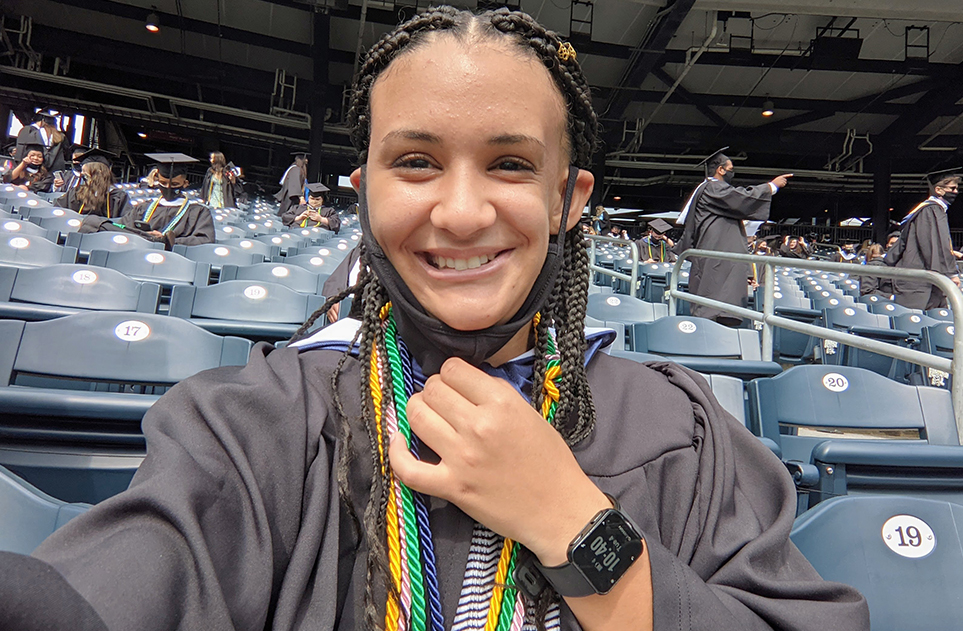The Explorers
Walk along with us and explore the steps University of Pittsburgh Health Sciences students take on their journey to discovering their education, careers and themselves.
Working
for
justice
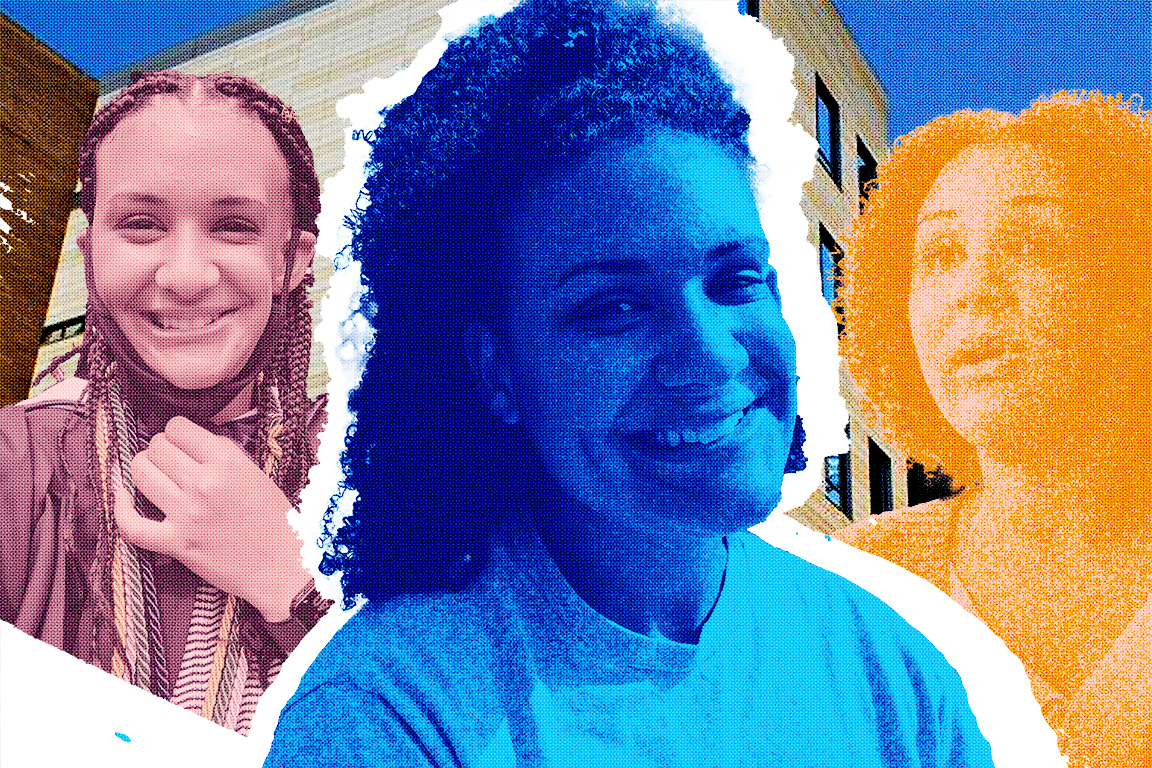
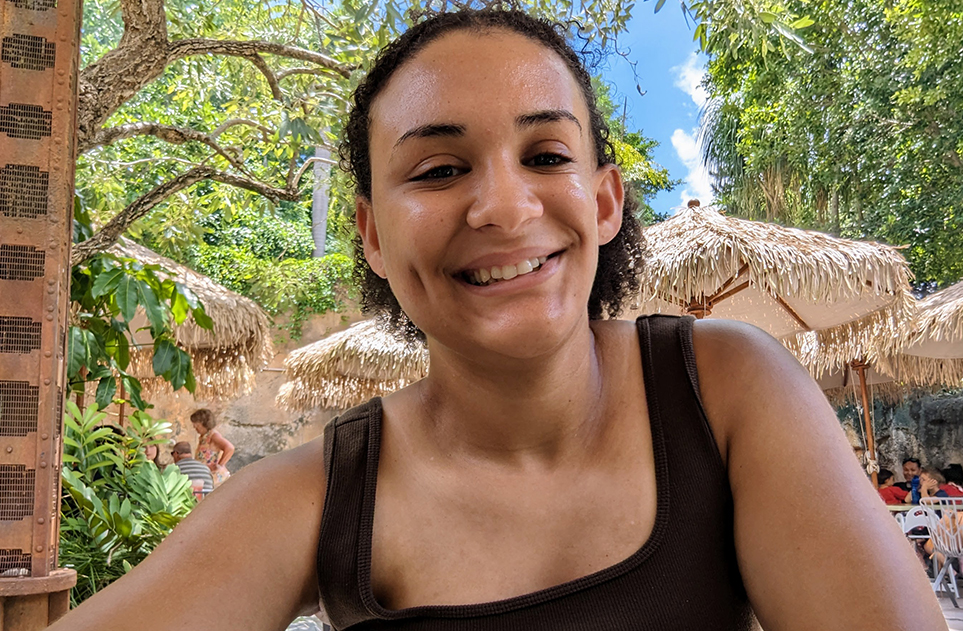
“Public health is about shifting the blame away from individuals and focusing on the contexts and the conditions that they’re living in.”
Monica Henderson
Meet Monica Henderson, who is using her training in Pitt’s School of Public Health to help address the social determinants of health among kids. She works in the Center for Race and Social Problems, which is housed in the School of Social Work.
When we met her in November of 2023, she’d been at Pitt for seven years, earning a bachelor of science in psychology, with a minor in sociology, followed by a master’s degree in public health, with a certificate in health equity.
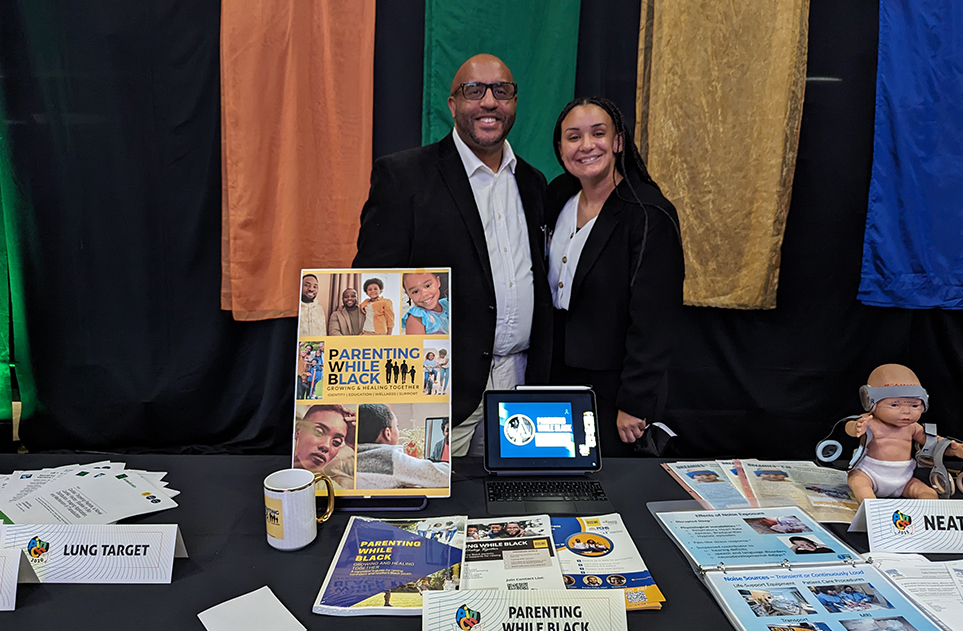
The First Step:
Pain
“I did not know what I wanted to do with my life and I’m pretty sure I was not alone,” she said.
“It was scary not to know what I wanted to do, because I find comfort in planning and in preparation.”
She developed an inner monologue. “First thing I’d say is, don’t worry about fitting into a degree. Just make that degree work for you. The second thing I would say is, find value in people and in connections. And the last thing I’d say is to know that you can belong in any space.”
She identified her priorities as helping children thrive, and working toward racial equity and racial justice. “I looked around and networked and I landed on public health,” she said, “because it would allow me the flexibility to explore those topics, alongside others with similar and different interests.”
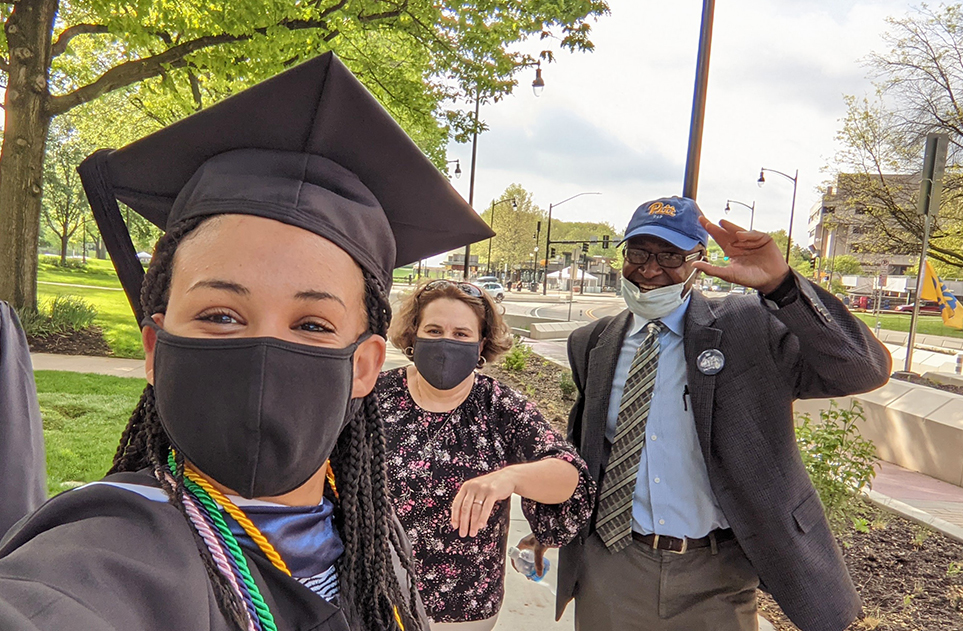
The Second Step:
Possibility
Henderson chose the Department of Behavioral and Community Health Sciences because it is rooted in social justice and the contextual framing of life and well-being.
She said public health “allowed me the freedom to define my own path professionally in the topics I wanted, especially when I didn’t know what I wanted my career, day-to-day, to look like.”
She explained, “Public health is about shifting the blame away from individuals and focusing on the contexts and the conditions that they’re living in.”
In addition to public health’s role in tracking disease outbreaks, vaccinating communities and implementing safety standards, the field also aims to address factors that affect people long before they get to the physician’s office. That can include economic stability, access to education, neighborhoods, social support networks and access to health care, known as the social determinants of health.
“That’s what’s important because people are living and breathing every second of their day and there’s so many things affecting them that are outside of their control, that often our society creates, and they have very little agency over changing that,” Henderson said. “The field is shifting into a more systems-level macro lens in terms of justice and equality, which I really appreciate.”
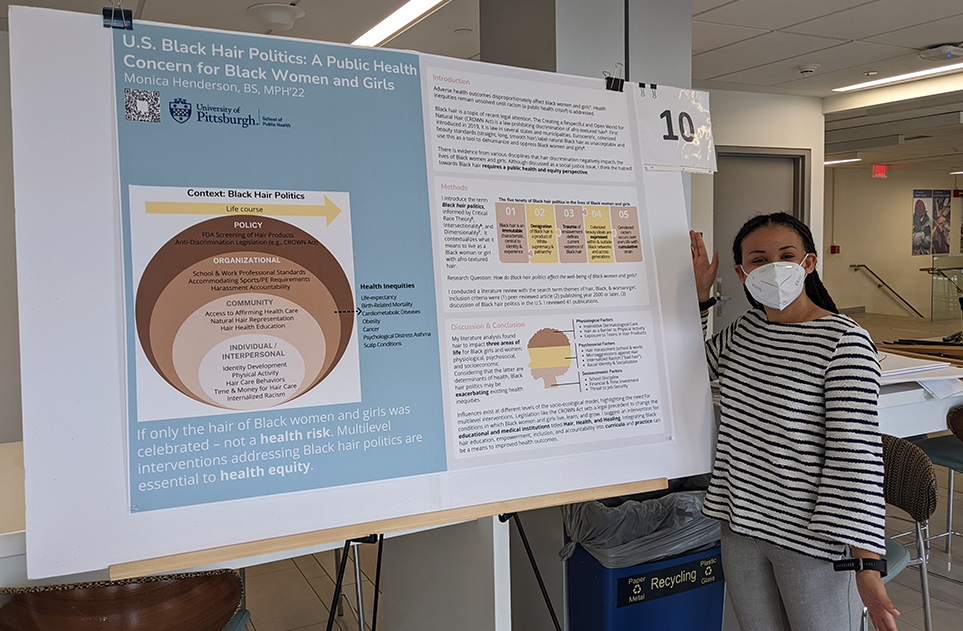
The Third Step:
Perseverance
“This social impact work is pretty soul-exhausting,” Henderson said. “I found myself being impatient for change, wanting change now, wanting people to change now, systems to change now. I was pouring in a lot physically, emotionally, mentally. And that’s not going to work in the long run. I need Monica to be here, 10, 20, 30, 40 years down the line.”
She continued: “What I’m doing now is being very attentive to how much I’m giving of myself in a moment, giving in a project, giving to a human, and sitting and being comfortable with, what I’m giving is enough. And that’s the hardest part for me. But I have to keep going back to the fact that expecting one person to change the world and restore justice and find a soft place to land for everyone is a really, really unattainable goal. And so my goal at the moment is to just focus on leaving little legacies and little points of impact.”
The Next Steps
Rather than focusing on a job title, Henderson is committed to continuing to work for social, racial and health justice.
The most rewarding part of her job is interacting with children, especially in the work her department does through grant-funded programs in the Pittsburgh Public Schools.
“There’s nothing like hearing kids scream your name, knowing that they see you in your name, knowing that they find comfort in your name, and seeing their faces like light up when they finally understand that you see them, that you take interests in their interests, their dreams, their feelings,” she said.
“That’s what matters to me. There’s really no maximum affirmation and attention you can give to youth and it’s important because they’re not our future. They are now. They need us now; they deserve us now. That’s the best part of my work.”
About the School of Public Health
We are a top-ranked destination for those driven to lead vital initiatives that strengthen local communities and diverse populations around the world. Our groundbreaking research grows from a rich history—from the development of the polio vaccine in the 1950s to today’s virtual modeling of infectious diseases. Pitt Public Health’s seven distinct departments are led by renowned faculty members who prepare our graduates for rewarding and influential positions at highly regarded institutions and organizations across the globe.
